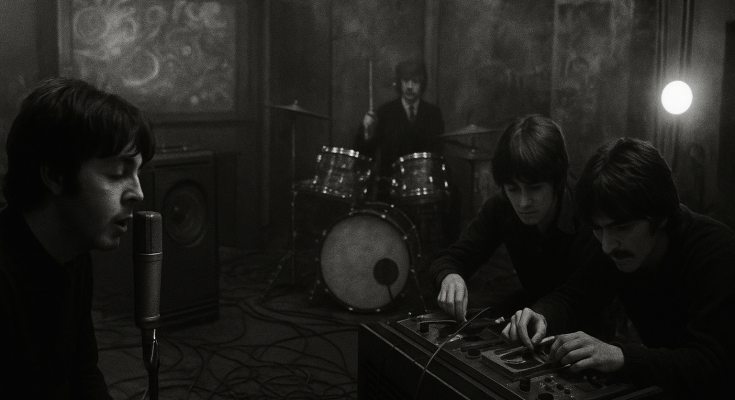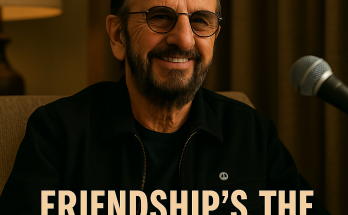Fans often point to “Strawberry Fields Forever” or “I Am the Walrus” as musical marvels, but there’s one track so radical that even The Beatles hesitated. Here’s the story behind the song that broke all the rules.
You guessed them in the comments! Songs like “Tomorrow Never Knows,” “A Day in the Life,” and “Revolution 9” all pushed the boundaries of what pop music could be. But there’s one track that stands out not just for its innovation, but for the fact it nearly remained locked away in the Abbey Road vaults forever.
That song is “Tomorrow Never Knows” off Revolver (1966).
Why It Was So Radical:
While other songs were experimental, “Tomorrow Never Knows” was revolutionary. It didn’t just play with new ideas—it invented them.
-
First-Ever Use of Tape Loops: The song’s seagull-like sounds were actually tape loops of Paul laughing and a sped-up sitar, physically manipulated by the band and engineers during the recording.
-
Backwards Everything: George Harrison’s sitar solo was recorded backwards, and John Lennon’s vocals were run through a rotating Leslie speaker to give it that eerie, distant, almost divine quality.
-
No Verse-Chorus Structure: The song abandoned traditional pop format entirely, opting for a hypnotic, droning rhythm that felt more like a spiritual mantra than a rock song.
Why They Hesitated:
Even by The Beatles’ evolving standards, this was a staggering leap. There were genuine concerns that audiences—and even their own label—wouldn’t just dislike it, but wouldn’t understand it. It was unlike anything ever released by a major pop act. John Lennon himself was deeply inspired by the Tibetan Book of the Dead and Timothy Leary’s writings, themes far beyond the typical “yeah yeah yeah” of earlier hits.
In the end, their courage won out. They placed it as the final track on Revolver, effectively giving listeners an entire album to prepare for the mind-bending conclusion.
The Legacy:
“Tomorrow Never Knows” didn’t just become a classic—it laid the foundational blueprint for entire genres like psychedelic rock, electronic music, and sampling. Without it, the sonic landscapes of bands like Pink Floyd, The Chemical Brothers, and even modern producers like Pharrell Williams might look very different.
So, the next time you listen to Revolver, remember: you’re hearing the moment The Beatles chose to risk everything—and in doing so, invented the future of music.



